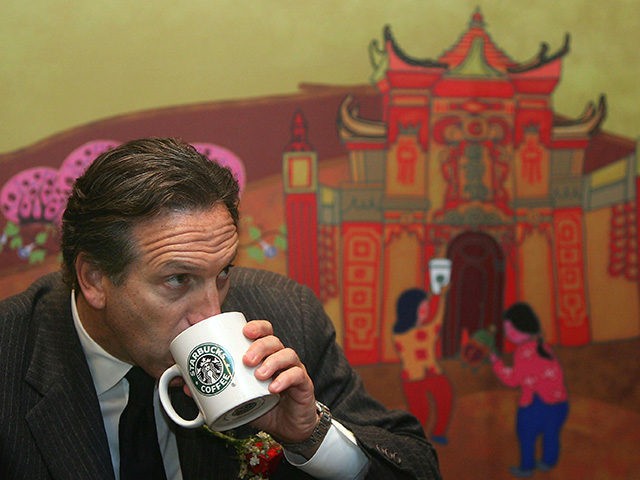In his first sit-down interview since announcing plans to step down as Starbucks’ executive chairman, Howard Schultz said that he does not understand President Donald Trump’s trade battle with China and that the communist nation’s economic aggression is not a problem.
Schultz told CNBC Squawk Box co-host Andrew Ross Sorkin Tuesday that he is baffled by the Trump administration’s trade policy towards China.
“Going back to China and trade… this rhetoric about all these trade wars that are now being engaged with China, with Mexico, with Canada… this might sound like a trite line, but it’s important. We should not be in the business of building walls, we should be in the business of building bridges,” Schultz said.
“We are in a trade battle here that I do not understand. Our problem is not China. Our problem is here in the US we have $21 trillion in debt.”
Schultz, the founder of Starbucks Coffee, will step down as the company’s executive chairman on June 26.
“I’ll be thinking about a range of options for myself, from philanthropy to public service, but I’m a long way from knowing what the future holds,” Schultz wrote in a memo sent to employees.
Just days before announcing his departure, Schultz — the subject of much speculation about running for the White House in 2020 — blamed President Trump for America’s “racial divide.”
U.S. officials are negotiating with China in an effort to cut the $370 billion trade imbalance between the two countries.
The third round of trade talks between the world’s two largest economies appeared to fall short of bridging the gap between Beijing and Washington, which are at loggerheads over Chinese trade and industrial policy practices that US President Donald Trump says kill American jobs.
The discussions in Beijing, led by Commerce Secretary Wilbur Ross and Chinese Vice Premier Liu He, were intended to ease tensions after Washington said Tuesday it would follow through with tariffs on Chinese imports despite a truce reached between the two sides last month.
The planned U.S. trade sanctions on Beijing include restrictions on Chinese investment, export controls and 25 percent tariffs on $50 billion in tech goods.
Agence France-Presse contributed to this report.

COMMENTS
Please let us know if you're having issues with commenting.